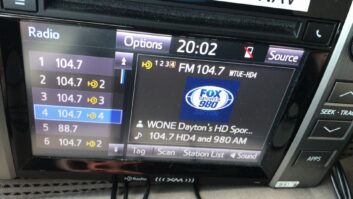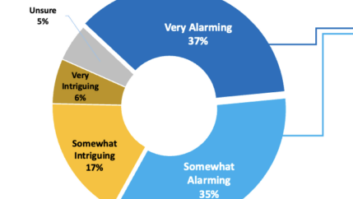Some Canadian broadcasters are worried about potential interference to their analog AM and FM broadcasts along border areas and beyond as more U.S. stations go digital. Radio World reported on this a year ago, saying the Canadian Association of Broadcasters was most concerned with potential interference to FM stations in Toronto, Windsor and Vancouver, markets heavily penetrated by U.S. FM signals.
But after reading the Further Notice in the IBOC proceeding, the CAB and the Canadian Broadcasting Corporation felt it necessary to re-state their concerns in an Aug. 4 letter to the division of the Canadian government that manages and allocates spectrum, Industry Canada.
“We feel that it is necessary for us to stress again the necessity for Industry Canada to notify the FCC that the authorization of AM IBOC transmissions, especially at night, will very likely result in harmful interference to Canadian signals,” say the CAB and CBC in the letter. The CAB and CBC also believe IBOC transmissions have not been factored into current frequency coordination agreements between the two countries; agreements that also govern interference remediation.
Although Canada is using the Eureka-147 technology for digital radio on FM in six markets, it still relies heavily on analog in much of the country. The CBC says its AM transmitters are especially important in the Western and Atlantic provinces, “where single transmitters cover extensive areas that may be province-wide.”
Although the FCC states in the Further Notice that such international issues are important, the two Canadian groups don’t believe the U.S. is thinking about them early enough in the authorization process.
When RW Online asked Ibiquity for a reaction, COO Jeff Jury said, “We are aware of the comments made regarding the potential for IBOC to cause interference to Canadian broadcasts. Our understanding is that the FCC is working with the Canadian government to answer their questions and resolve their concerns. We are confidant that any concerns in Canada can be addressed and that these issues will not delay the rollout of HD Radio in the U.S.”
Could AM Nighttime IBOC be Delayed by Border Concerns?
Could AM Nighttime IBOC be Delayed by Border Concerns?











